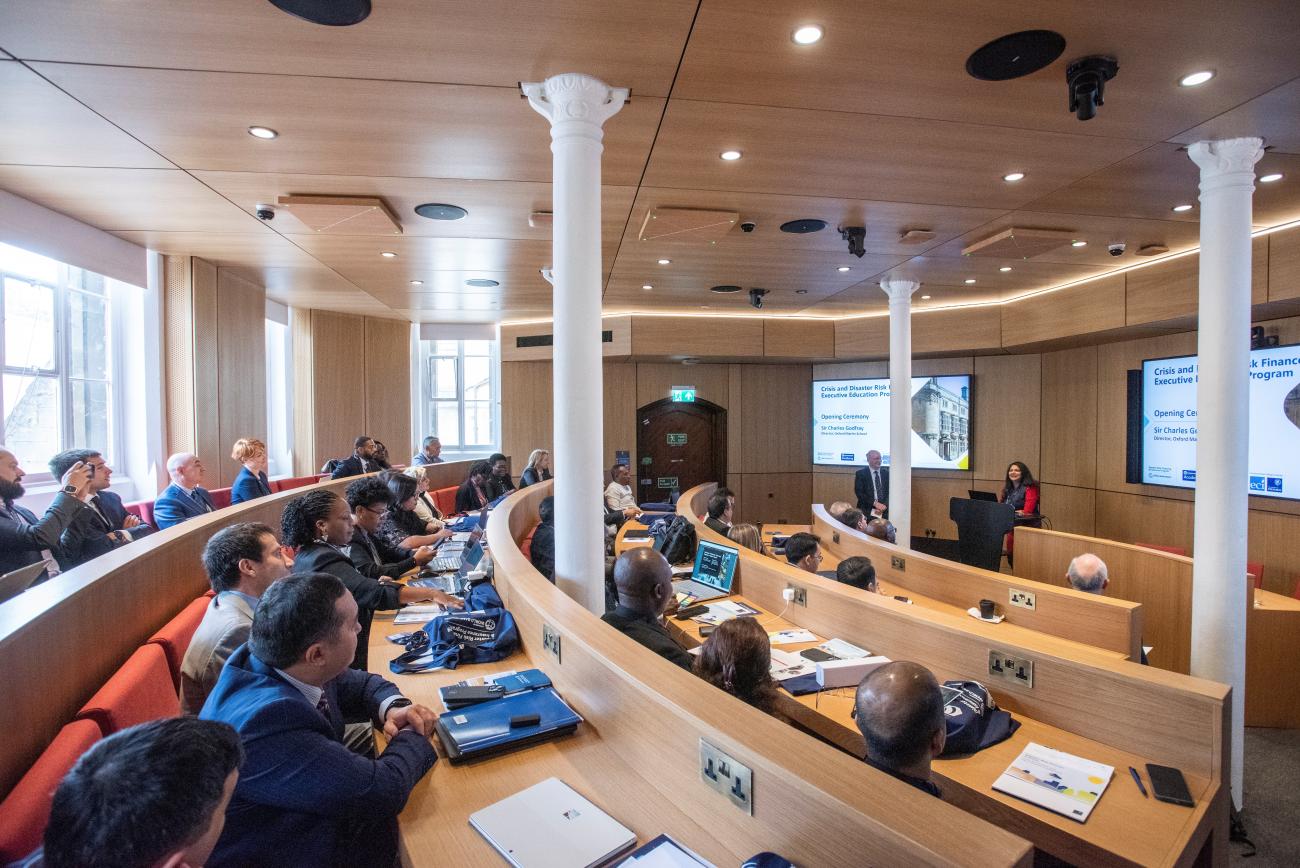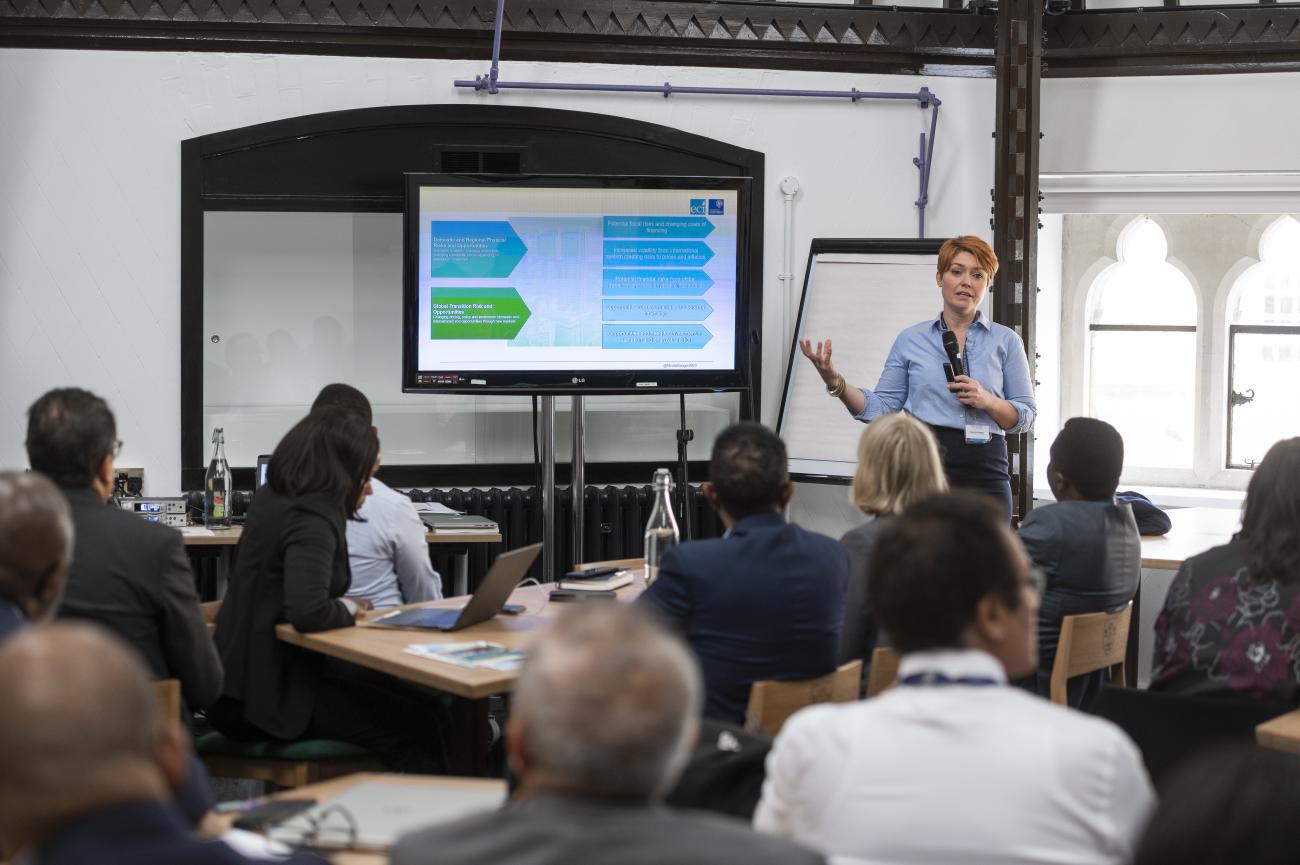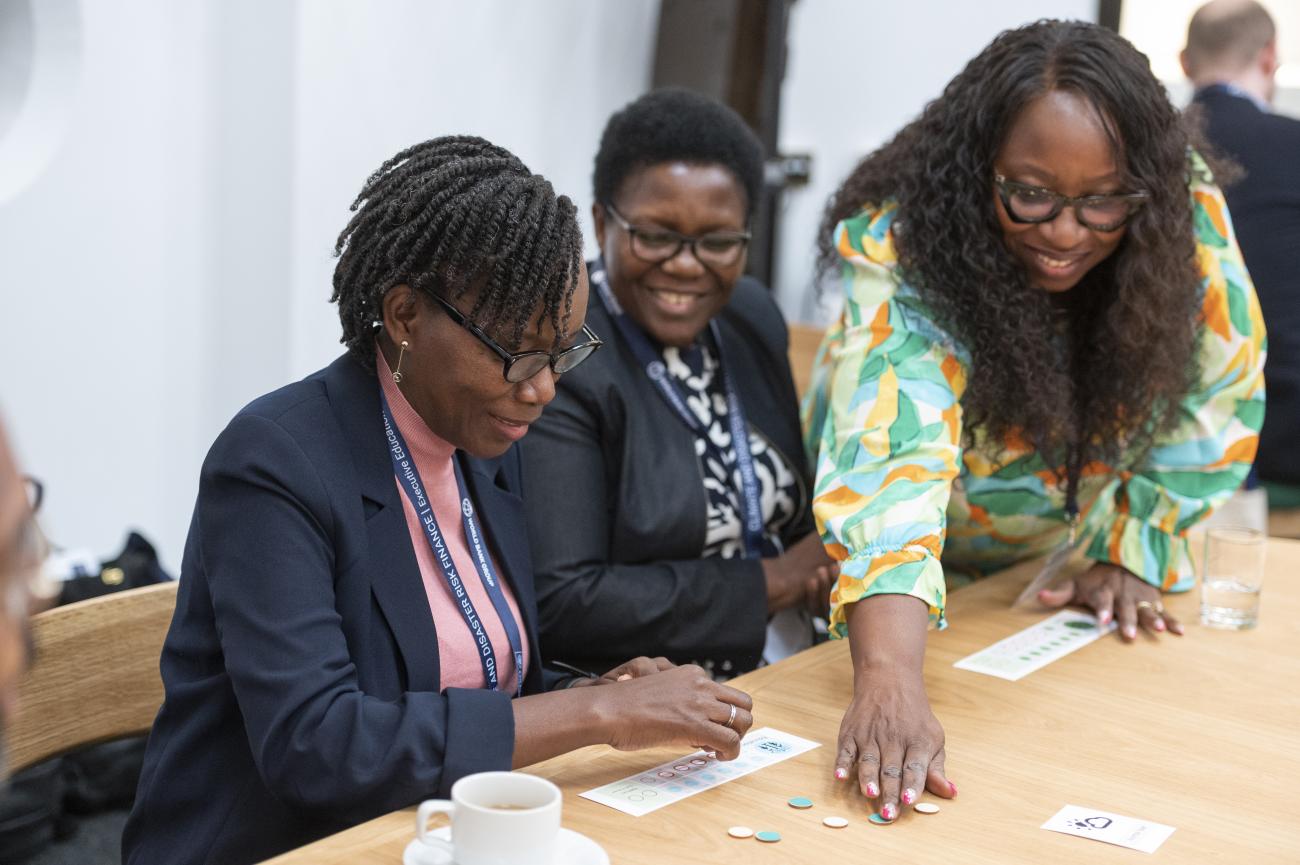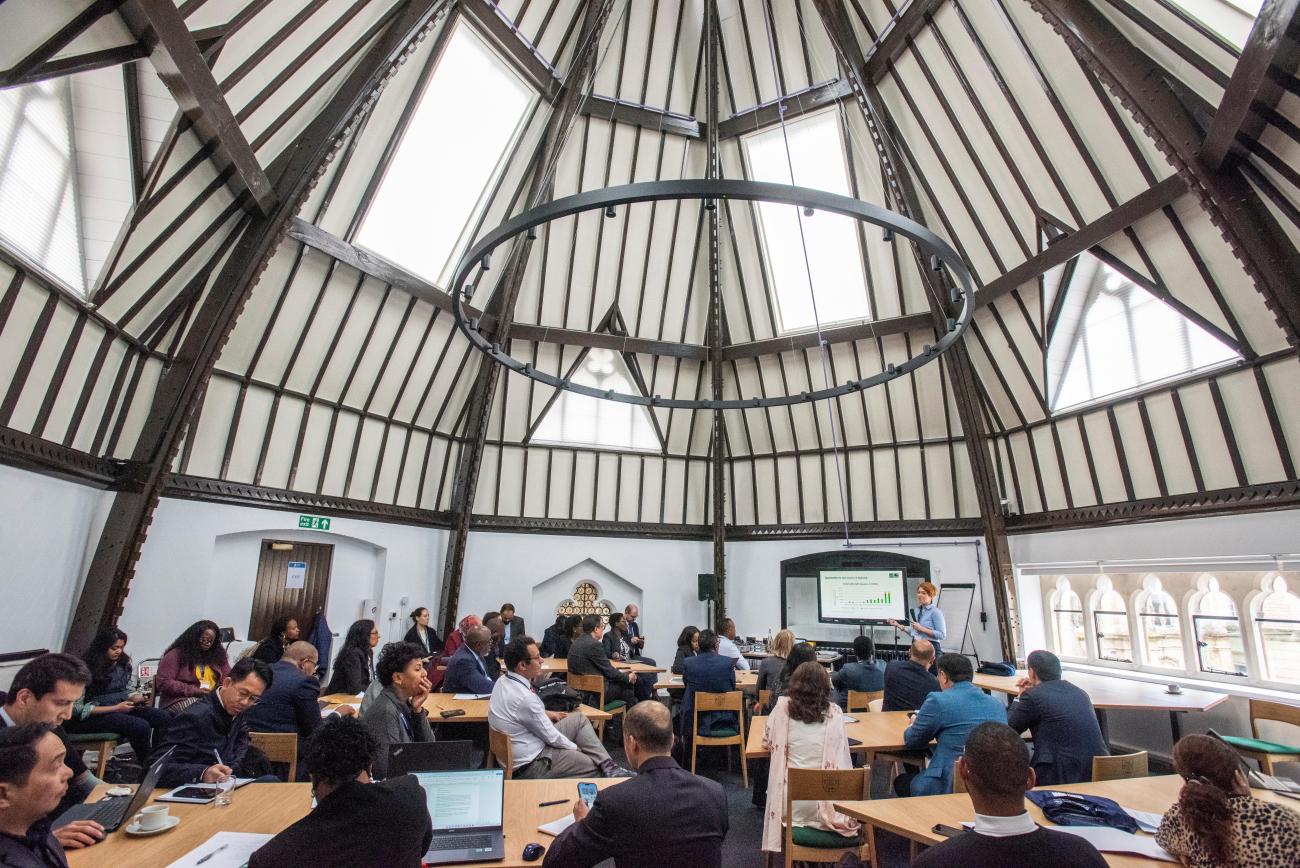Research leaders at the ECI recently demonstrated their expertise in advancing practical solutions to manage global shocks – particularly those related to climate and nature risks in emerging market and developing economies (EMDEs) – by holding a series of thought leadership discussions and executive teaching workshops attended by World Bank leaders and over 30 senior officials from Ministries of Finance and financial regulators from more twenty countries.
A key highlight of the programme’s schedule was a roundtable discussion with the Bank’s Vice President for Equitable Growth, Finance and Institutions Pablo Saavedra alongside a range of academics working on research programmes that explored climate resilient development, nature and financial resilience in EMDEs.

It focussed attention on issues such as the impacts of climate change on an EMDE’s credit ratings and how to mitigate these, the role of international financial institutions (IFIs) in helping to mobilise sustainable investment, and how we can integrate resilience and nature more firmly into the evolving global financial architecture.
Roundtable participants also discussed the role of the World Bank in preparing countries for such long-term future risks, including by focusing on adaptation-based financing alongside mitigation and working more effectively with the insurance industry.

Dr Nicola Ranger, Resilience and Development programme lead at the ECI, said:
International financial institutions will need to play an increasingly important role in ensuring global systemic resilience in a world of growing climate and nature risks. The World Bank is one of the few institutions globally with the mandate, financial and convening firepower, and knowledge that are urgently needed.
We are delighted to collaborate with the Bank to explore ways to deploy these strengths to help emerging and developing economies to achieve resilient and sustainable development, and feel deeply honoured and privileged to have the opportunity to share and learn together with more than forty senior officials from all over the world at the University of Oxford."
Another key visitor from the World Bank was Dr Samuel Munzele Maimbo, vice president for budget, performance review and strategic planning. He delivered a keynote speech on the challenges of the World Bank in navigating an unprecedented level of political, economic and social unrest alongside an increasing divergence of views on the causes and appropriate responses.
Joining them from the ECI was Dr Mark Bernhofen who gave a lecture on the importance of data and analytics in informing disaster risk finance related policy making and product design.

The event was held at the Oxford Martin School (OMS). At a subsequent roundtable with OMS academics, Dr Maimbo explored the present situation regarding systemic resilience and climate policy within Oxford, and how a global multilateral development bank like the World Bank could play a more effective role in the world today.
Discussions focused on how to move towards more efficient coordination and allocation of global development finance to ensure effective investment in net-zero initiatives; how to address debt crisis and ensure resources for energy transitions in EMDEs; how to incorporate natural capital in policy planning in EMDEs; and the need to consider food security and agriculture needs holistically.

The week concluded with a two-day executive education programme on the climate and disaster risk finance delivered by the World Bank in partnership with the Oxford Martin Systemic Resilience programme, Global Shield against Climate Risks and Insurance Development Forum (IDF).
More than 30 senior finance leaders from Ministries of Finance and financial regulators from over 20 countries joined together to learn a comprehensive framework for contextualising disaster risk finance and mobilising resilience finance within their own countries’ settings and to share their experience in implementing climate risk finance solutions and instruments.
Watch Dr Nicola Ranger present the executive education programme and speak of its importance for adapting to climate change.
Video transcript
Environmental Change Institute in partnership with the World Bank hosted the new Climate and Disaster Risk Finance Executive Education Programme.
Senior finance leaders in government departments from over 20 countries gathered together to learn climate risk finance solutions and instruments
Nicola Ranger Director Resilient Planet Finance Lab and Executive Director Systemic Resilience, Environmental Change Institute, University of Oxford.
We're absolutely delighted to be working with the World Bank as part of this partnership, one of the first pilots of the new World Bank Academy.
I'm really honoured to be here with 30 delegates from across 21 countries, all here learning about disastrous finance, insurance and how it links in with climate adaptation.
This is part of a larger initiative we've been starting years ago at the demand of the countries to very much bring this kind of knowledge and help them understand what disastrous finance is about, but also to learn from each other on how they can apply in their respective countries disastrous finance.
So this is very much knowledge for action and we've seen many examples where this kind of setting help them understand the topic, but also come back to their country and then implement that through multiple policy actions.
Programs like this are so important as part of the climate agenda.
And this particular collaboration between the World Bank and the University of Oxford brings together this world leading expertise across finance, across resilience of data and to really help countries to make plans to deal with climate related risks.
If we're going to achieve our goals in terms of adapting to climate change is exactly the type of program that we need.

